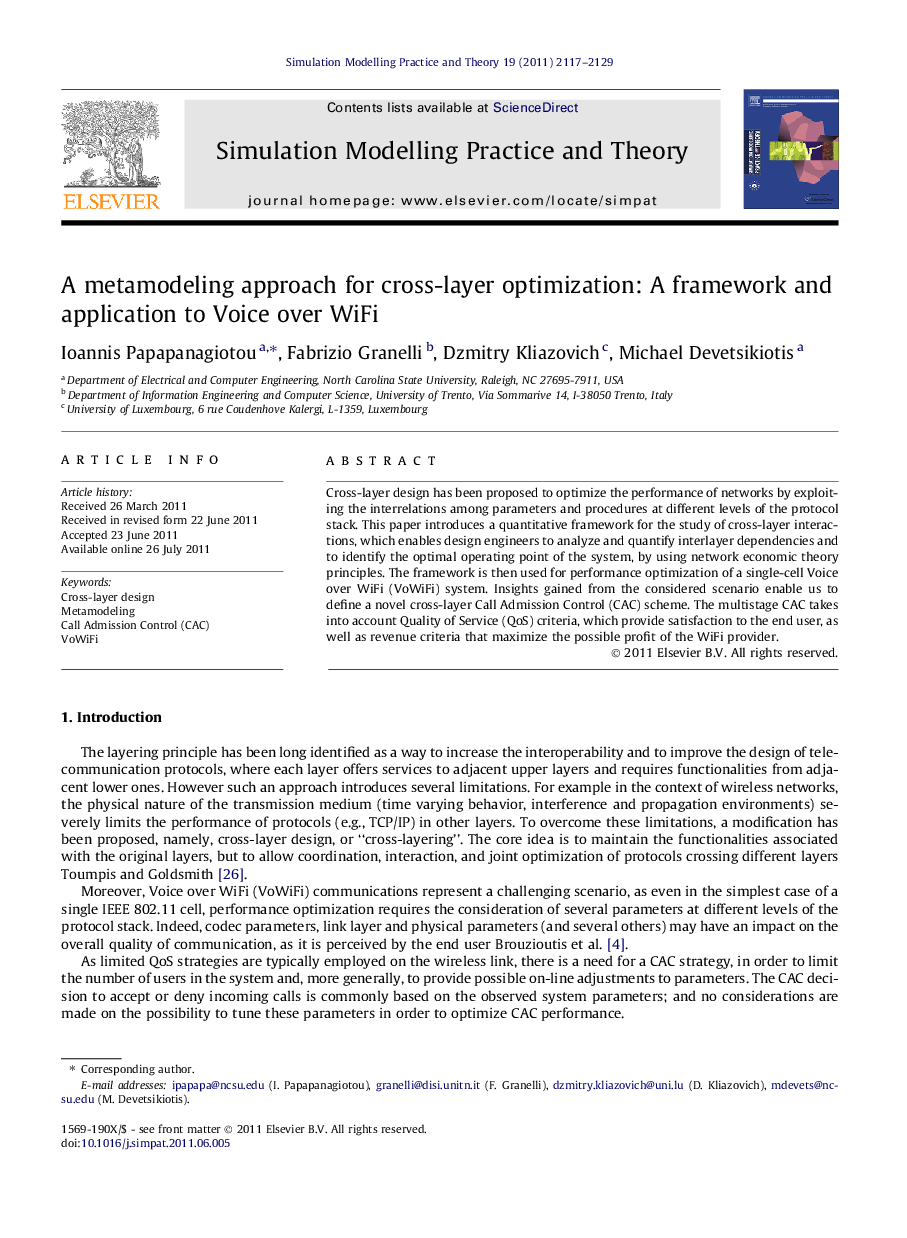| Article ID | Journal | Published Year | Pages | File Type |
|---|---|---|---|---|
| 492316 | Simulation Modelling Practice and Theory | 2011 | 13 Pages |
Cross-layer design has been proposed to optimize the performance of networks by exploiting the interrelations among parameters and procedures at different levels of the protocol stack. This paper introduces a quantitative framework for the study of cross-layer interactions, which enables design engineers to analyze and quantify interlayer dependencies and to identify the optimal operating point of the system, by using network economic theory principles. The framework is then used for performance optimization of a single-cell Voice over WiFi (VoWiFi) system. Insights gained from the considered scenario enable us to define a novel cross-layer Call Admission Control (CAC) scheme. The multistage CAC takes into account Quality of Service (QoS) criteria, which provide satisfaction to the end user, as well as revenue criteria that maximize the possible profit of the WiFi provider.
► We introduce a quantitative framework for the study of cross-layer interactions using meta-simulation analysis. ► The proposed methodology enables researchers and engineers to analyze and to quantify interlayer dependencies. ► We showcase that a proper selection of parameters, across and between layers, may optimize the performance of the system. ► We apply this framework in a single-cell Voice over WiFi (VoWiFi) system. ► Insights from the VoWiFi analysis are then used to define a novel cross-layer Call Admission Control.
